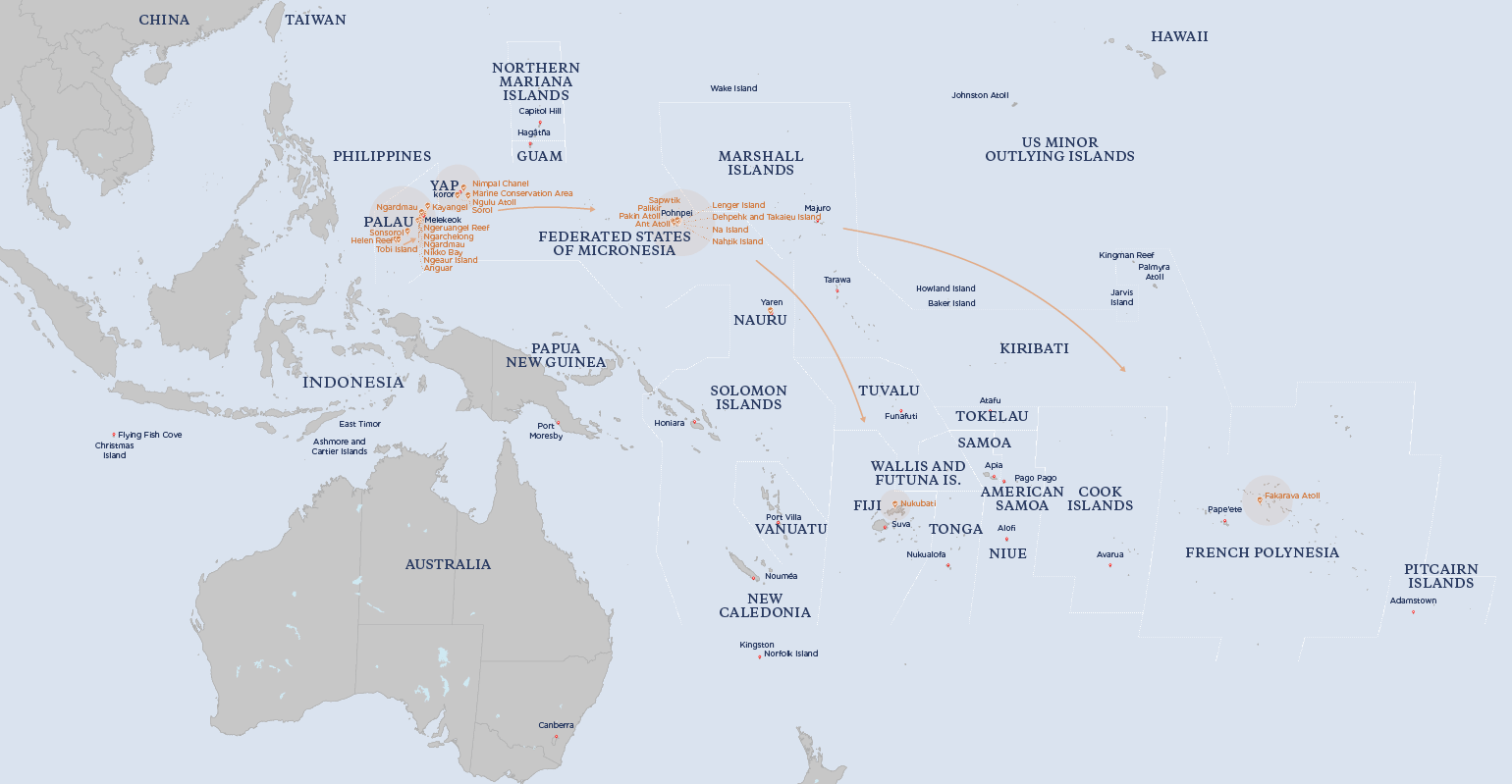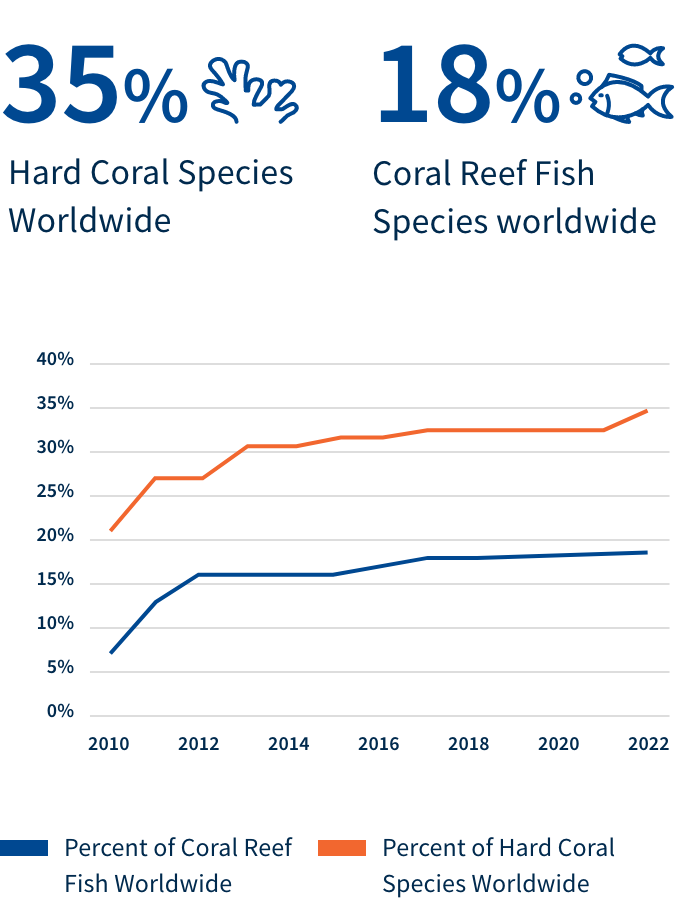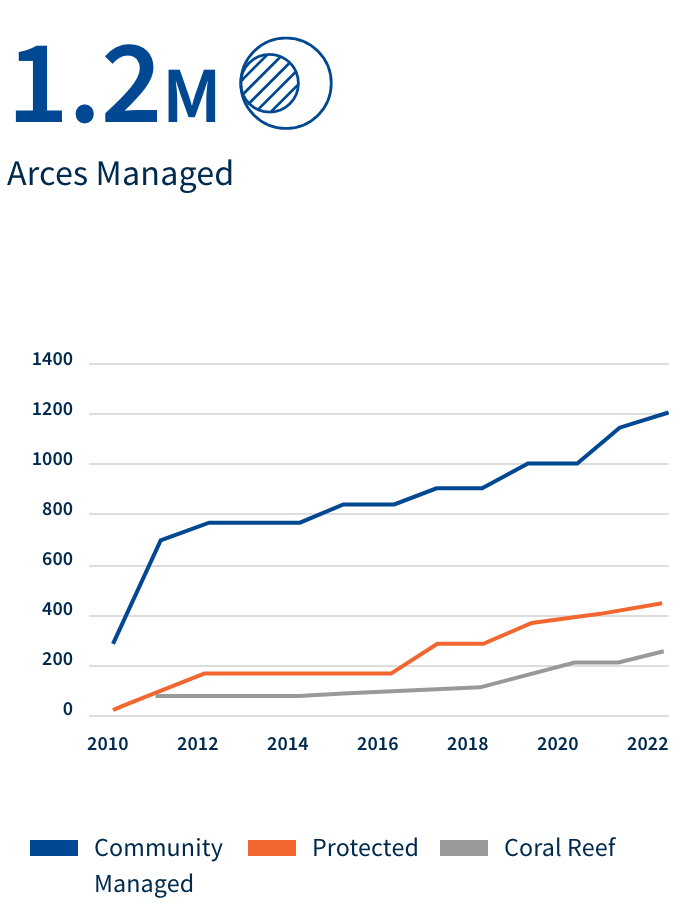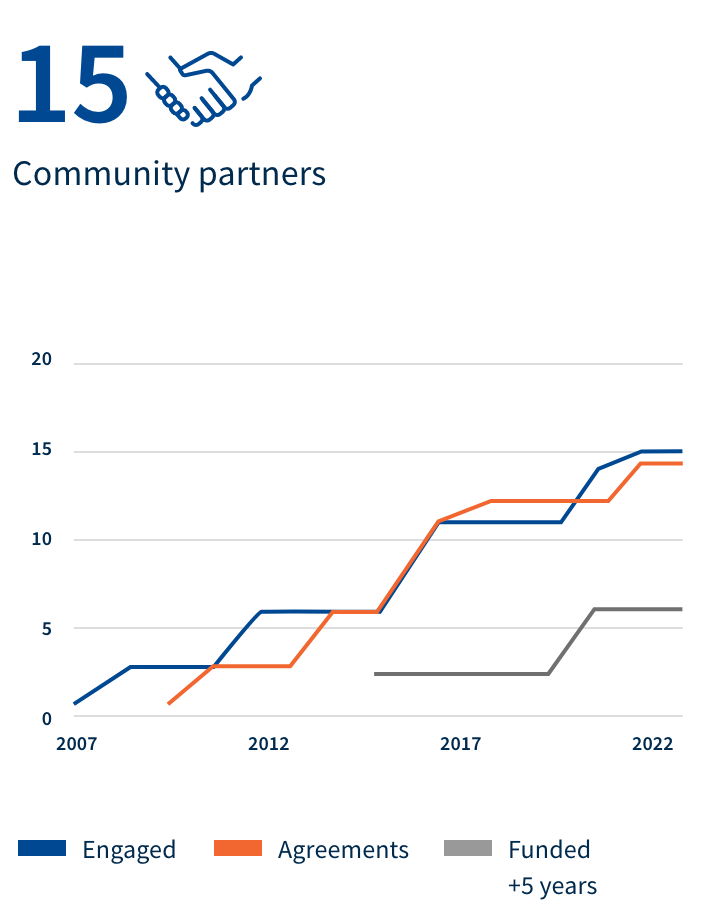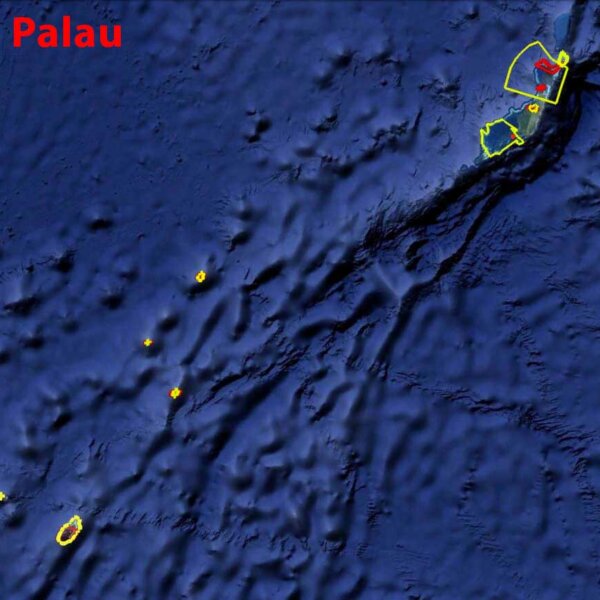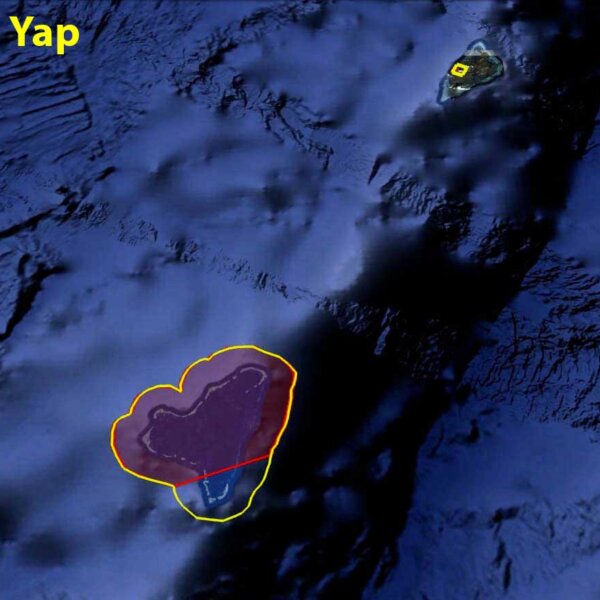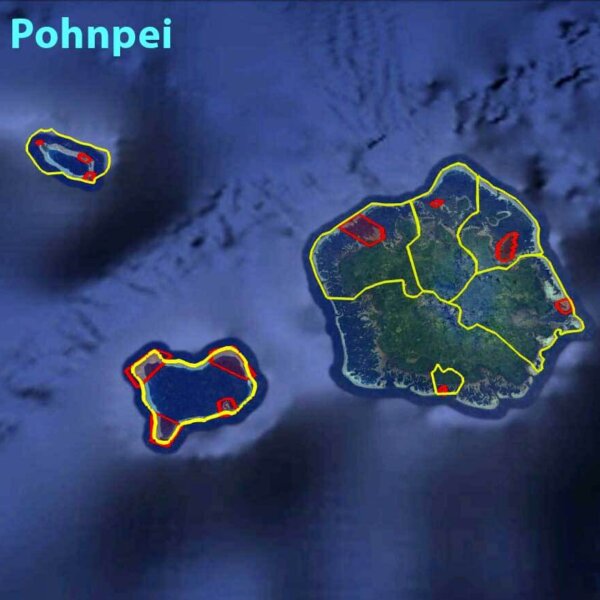Our Goal
Vibrant Reefs and thriving communities
At OneReef, we aim to scale community partnerships across the Pacific to create one ocean kinship, sustainably conserving our reef and island ecosystems.
Community partnerships
15
In 2023
50
In 2028
Acres managed
1.2M
In 2023
4M
In 2028
Our Global Impact
Based on existing data collected from Helen Reef Atoll, Micronesia, and the world.
OneReef community partnerships produce
more productive reefs
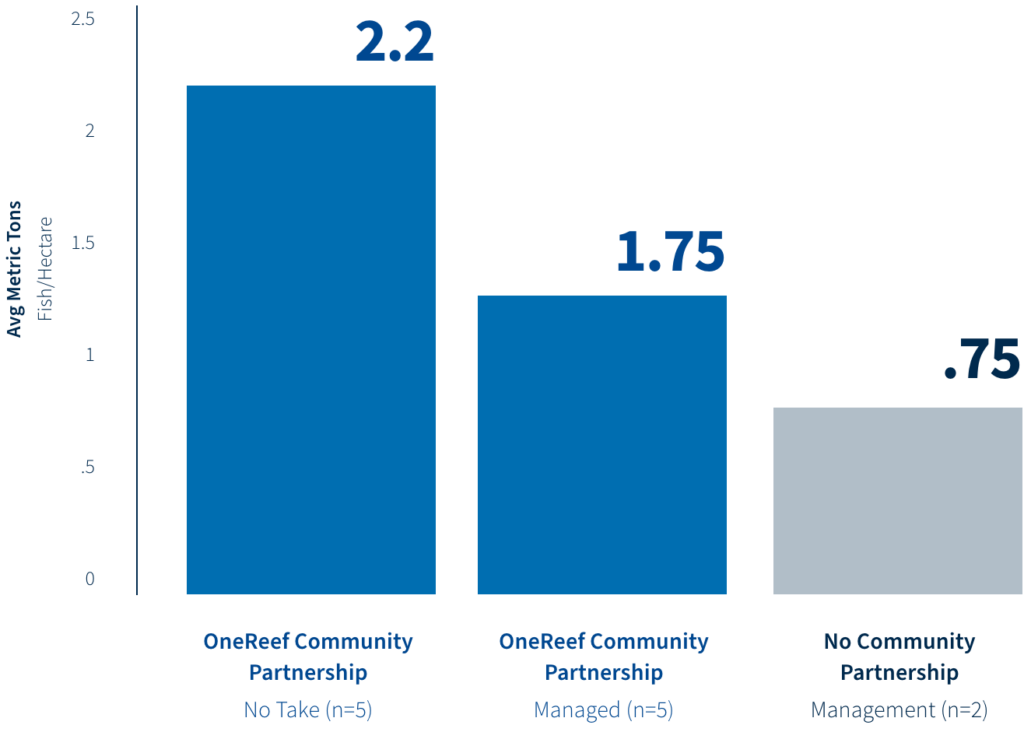
Independent, peer-reviewed research indicated OneReef Community Partnerships have higher biomass of important fish than adjacent areas outside the One Reef Community Partnerships and that our no-take areas have even more fish.
Data compiled by Friedlander et al. 2017 PLOS and simplified for display here
Community Impact Reports
How do trust and respect result in healthier coral reefs?
Much to Celebrate!
Thank you from across the oceans!
Fuller Family Charitable Fund energizes OneReef work!
Treat everyday like World Ocean Day!
OneReef wins Blue Climate Initiative award!
Small ranger team foils 28 poachers in large vessel!
A Thank-you by any other name...
An Extraordinary Summer
Celebrating a 10 year community partnership!
Staying Connected
Why do we work in Micronesia? Conservation is their culture!
OneReef: The role of women in coral reef conservation
OneReef: Creative Approaches, Remarkable Results
Does Community Policing Work?
Happy New Year and Thank you!
Lend a Hand: OneReef $ for $ Challenge
OneReef - Giving thanks for and celebrating successes!
Splashing into Summer with OneReef
Spring 2018: OneReef Across the Pacific
